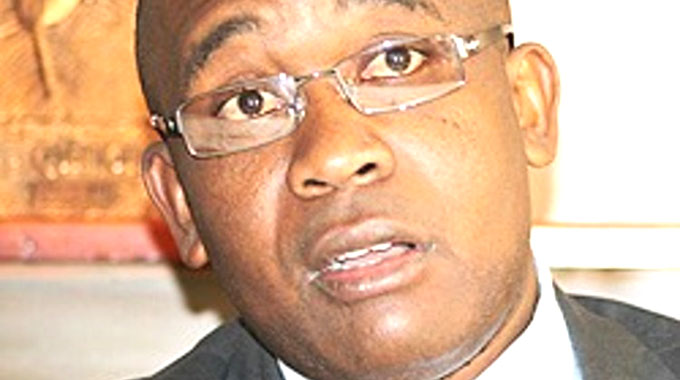MCAZ warns of fake cough medicines

Paidamoyo Chipunza Senior Health Reporter
The Medicines Control Authority of Zimbabwe (MCAZ) has issued an alert over fake cough and flu syrups for children beiing sold mostly in Harare and Chivhu with forged labelling.
The syrup uses Varichem Pharmaceuticals labels but Varichem has distanced itself from the product.
MCAZ has warned against consumption of the products saying there was strong suspicion they could be substandard.
In a statement, MCAZ said the products presented under the name “Flumed” carried the batch number 260511 with May 2021 as the expiry date. The products have labels declaring to have paracetamol/phenylephrine, hydrochloride/dextromethorphan and hydrobromide/chlorpheniramine maleate as active ingredients.
“The MCAZ was informed through the police as part of an ongoing investigation, that fake Flumed® was sold in a pharmacy in Harare. At this stage, several investigations have been done, and it is strongly suspected that the fake Flumed ® syrup is substandard,” said MCAZ in the statement.
“The variable details on the product label do not correspond to the genuine manufacturing records. There are labelling and packaging inconsistencies. A certificate of analysis for the falsified product showed that the active ingredients are at sub-therapeutic levels,” said MCAZ.
Although the MCAZ said there had been no adverse reactions reported so far, anyone who bought them should not consume them.
“If you are in possession of the above mentioned falsified product, please do not consume this product. If you have taken these falsified medical products, or if you suffer an adverse event or an unexpected lack of efficiency, please seek immediate advice from a qualified health professional and ensure they report the incident to the MCAZ,” reads the statement.
The body also called on anyone who might have information concerning the manufacture, distribution or supply of the falsified product to contact the MCAZ.
The World Health Organisation (WHO) defines a falsified medicine as one that is deliberately and fraudulently mislabelled concerning identity and source.
Falsified medicines are produced in unsanitary and unregulated conditions by unknown manufacturers.
They can contain incorrect quantities of the active pharmaceutical ingredient (API), inert ingredients and dangerous contaminants.
The packaging of falsified medicines is nearly always identical to the original medicine, making it challenging to identify without running a series of detection tests on the contents of the medicine.
If they are substandard, they can cause adverse effects and complications for the consumer. If a drug contains too low a dose of active ingredient, not all bacteria, parasites or viruses are killed.
Pathogens can become resistant to the drug, allowing them to multiply and spread, leading to worsening of conditions and death.
Early this month an investigation by The Herald proved that high mark-ups imposed by importers, wholesalers and retailers of medicines have resulted in a flood of cheaper drugs being smuggled from neighbouring countries and sold on the streets by vendors.
Along with legal drugs, that require a doctor’s prescription and in any case can legally only be sold by a registered pharmacy, vendors are also pushing banned drugs.
The street drugs are not tested and there is no guarantee that they are genuine and have been stored properly.
Worse still, the drugs are being dispensed by untrained vendors, who have usurped the functions of doctors, nurses and pharmacists.
Street drugs can cost as low as a quarter to an eighth of the pharmacy prices.
Zimbabwe Revenue Authority (Zimra) Commissioner-General Faith Mazani confirmed that drugs were being smuggled into the country, saying this called for a joint operation involving the police and the Ministry of Health and Child Care.
“Smuggling of medicines is now rampant in this country. Some enter through undesignated points that we are not even aware of. At times, there is connivance with our officers. They are corrupted the same way as those who are involved in vehicle smuggling scams.
“Another problem is that, as Zimra, we can only detect consignments that come through the border posts.
“Others are smuggled by water using boats and with our limited resources, we are not capacitated enough to prevent such occurrences. When the drugs get into the cities, we all see them but it is difficult for us to tell whether they were smuggled or stolen from hospitals.
“So the issue is so complex and there is need for a joint operation involving Zimra, the Ministry of Health and the police to enable to raid the drugs from the streets,” she said.
Some of the drugs are banned by MCAZ because of their hazardous effects, but they find their way illegally onto the market.
MCAZ director-general Mrs Gugu Mahlangu said MCAZ previously launched joint operations with the Criminal Investigations Department (CID) Drugs and arrested a number of dealers.
Mrs Mahlangu said previous blitzes did not include Zimra, which has now turned to be an important stakeholder in the fight against illegal drug sales.
However, Mrs Mahlangu said fines imposed on the offenders were not deterrent enough.











Comments